CUPRA Born vs Renault Scénic - Differences and prices compared
Compare performance (326 HP vs 218 HP), boot space and price (34700 £ vs 34600 £ ) at a glance. Find out which car is the better choice for you – CUPRA Born or Renault Scénic?
Costs and Efficiency:
Price and efficiency are often the first things buyers look at. Here it becomes clear which model has the long-term edge – whether at the pump, the plug, or in purchase price.
Renault Scénic has a slight advantage in terms of price – it starts at 34600 £ , while the CUPRA Born costs 34700 £ . That’s a price difference of around 43 £.
In terms of energy consumption, the advantage goes to the CUPRA Born: with 14.90 kWh per 100 km, it’s somewhat more efficient than the Renault Scénic with 16.60 kWh. That’s a difference of about 1.70 kWh.
As for electric range, the Renault Scénic performs minimal better – achieving up to 598 km, about 4 km more than the CUPRA Born.
Engine and Performance:
Power, torque and acceleration say a lot about how a car feels on the road. This is where you see which model delivers more driving dynamics.
When it comes to engine power, the CUPRA Born has a noticeable edge – offering 326 HP compared to 218 HP. That’s roughly 108 HP more horsepower.
In acceleration from 0 to 100 km/h, the CUPRA Born is clearly quicker – completing the sprint in 5.60 s, while the Renault Scénic takes 7.90 s. That’s about 2.30 s faster.
In terms of top speed, the CUPRA Born performs somewhat better – reaching 200 km/h, while the Renault Scénic tops out at 170 km/h. The difference is around 30 km/h.
There’s also a difference in torque: CUPRA Born pulls convincingly stronger with 545 Nm compared to 300 Nm. That’s about 245 Nm difference.
Space and Everyday Use:
Beyond pure performance, interior space and usability matter most in daily life. This is where you see which car is more practical and versatile.
Both vehicles offer seating for 5 people.
In curb weight, Renault Scénic is slight lighter – 1822 kg compared to 1828 kg. The difference is around 6 kg.
In terms of boot space, the Renault Scénic offers clearly perceptible more room – 545 L compared to 385 L. That’s a difference of about 160 L.
In maximum load capacity, the Renault Scénic performs evident better – up to 1670 L, which is about 403 L more than the CUPRA Born.
When it comes to payload, Renault Scénic to a small extent takes the win – 518 kg compared to 452 kg. That’s a difference of about 66 kg.
Who wins the race in the data check?
The CUPRA Born is clearly superior overall in the objective data comparison.
This result only shows which model scores more points on paper – not which of the two cars feels right for you.
Costs and Consumption
View detailed analysis
Engine and Performance
View detailed analysis
Dimensions and Body
View detailed analysis
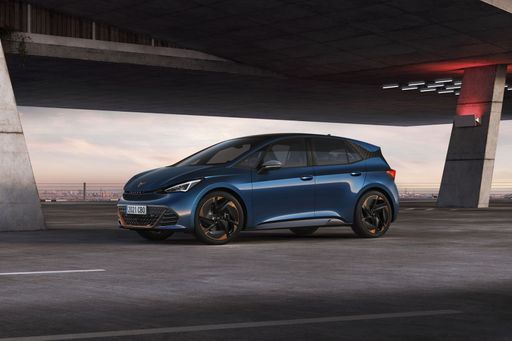
CUPRA Born
CUPRA Born
The CUPRA Born blends sharp, athletic styling with a playful electric character, delivering hatchback agility and hot-hatch attitude whether you're darting through the city or cruising the open road. Inside, the cabin punches above its weight with smart materials and practical space, making it a compelling pick for buyers who want electric motoring without surrendering the grin.
details
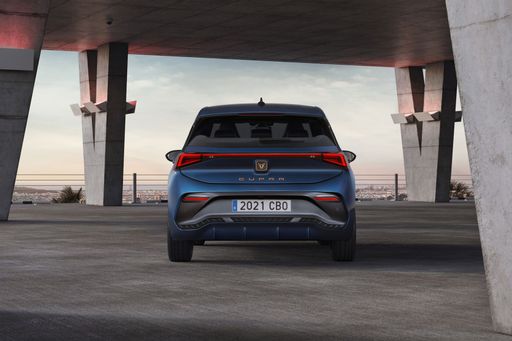
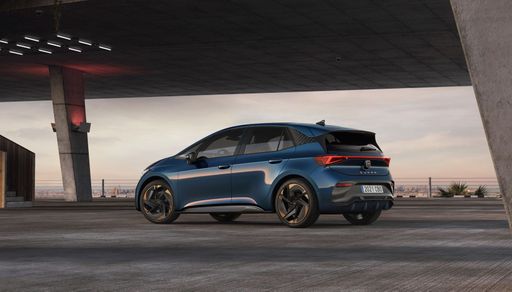
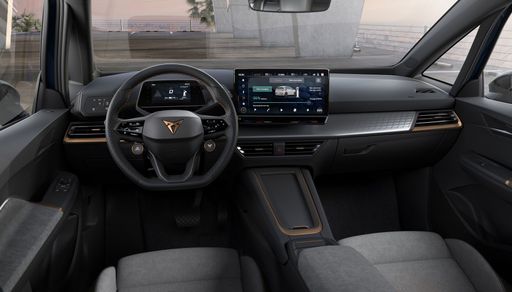
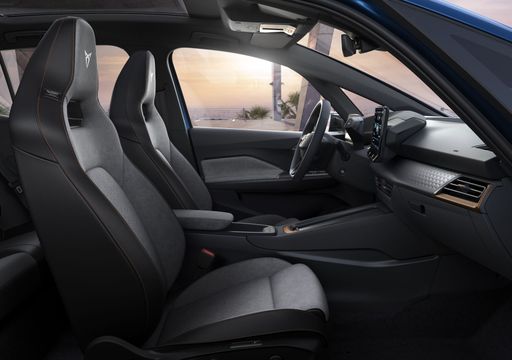
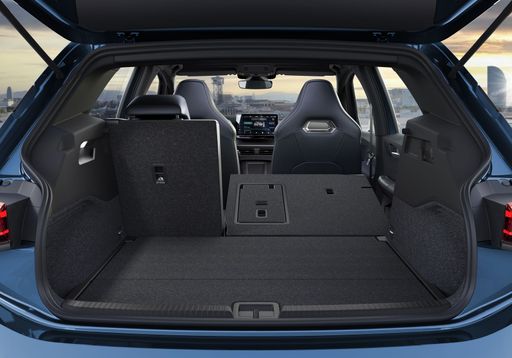
Renault Scénic
The Renault Scénic is a quietly clever family MPV that balances everyday practicality with unexpected flair, offering a roomy, flexible cabin that makes school runs and weekend escapes less of a chore. It won't dazzle like a sports car, but its composed ride, sensible tech and thoughtful storage solutions make it a superbly pragmatic choice for buyers who prefer substance with a wink.
details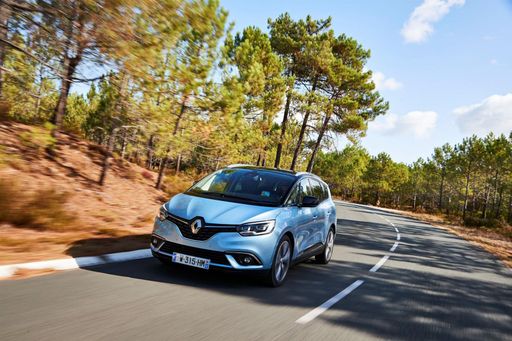
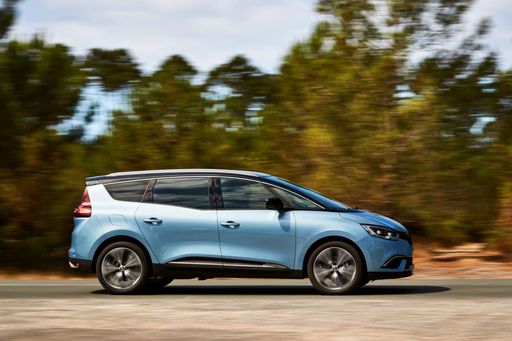
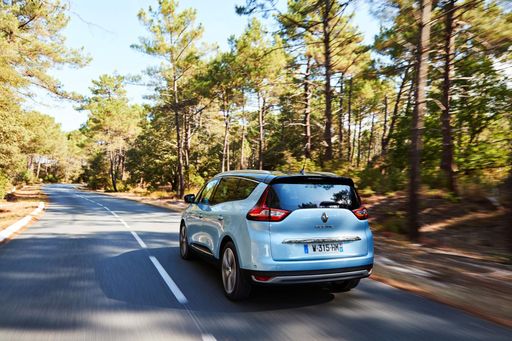
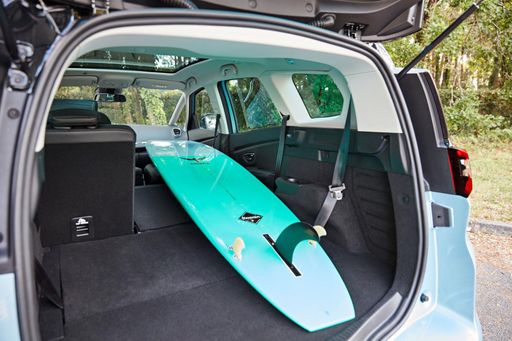
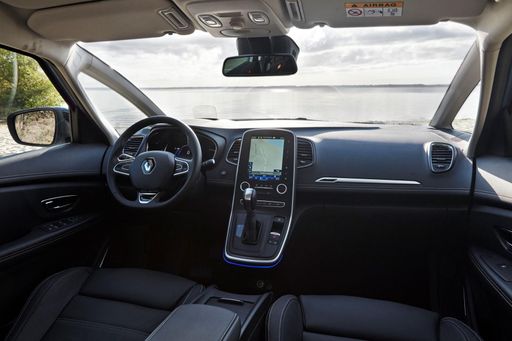
Costs and Consumption |
|
|---|---|
|
Price
34700 - 45300 £
|
Price
34600 - 44000 £
|
|
Consumption L/100km
-
|
Consumption L/100km
-
|
|
Consumption kWh/100km
14.9 - 16 kWh
|
Consumption kWh/100km
16.6 - 17.5 kWh
|
|
Electric Range
427 - 594 km
|
Electric Range
420 - 598 km
|
|
Battery Capacity
60 - 79 kWh
|
Battery Capacity
-
|
|
co2
0 g/km
|
co2
0 g/km
|
|
Fuel tank capacity
-
|
Fuel tank capacity
-
|
Dimensions and Body |
|
|---|---|
|
Body Type
Hatchback
|
Body Type
SUV
|
|
Seats
5
|
Seats
5
|
|
Doors
5
|
Doors
5
|
|
Curb weight
1828 - 1999 kg
|
Curb weight
1822 - 1927 kg
|
|
Trunk capacity
385 L
|
Trunk capacity
545 L
|
|
Length
4324 mm
|
Length
4470 mm
|
|
Width
1809 mm
|
Width
1864 mm
|
|
Height
1540 mm
|
Height
1571 mm
|
|
Max trunk capacity
1267 L
|
Max trunk capacity
1670 L
|
|
Payload
431 - 452 kg
|
Payload
514 - 518 kg
|
Engine and Performance |
|
|---|---|
|
Engine Type
Electric
|
Engine Type
Electric
|
|
Transmission
Automatic
|
Transmission
Automatic
|
|
Transmission Detail
Reduction Gearbox
|
Transmission Detail
Reduction Gearbox
|
|
Drive Type
Rear-Wheel Drive
|
Drive Type
Front-Wheel Drive
|
|
Power HP
204 - 326 HP
|
Power HP
170 - 218 HP
|
|
Acceleration 0-100km/h
5.6 - 7.7 s
|
Acceleration 0-100km/h
7.9 - 8.6 s
|
|
Max Speed
160 - 200 km/h
|
Max Speed
150 - 170 km/h
|
|
Torque
265 - 545 Nm
|
Torque
280 - 300 Nm
|
|
Number of Cylinders
-
|
Number of Cylinders
-
|
|
Power kW
150 - 240 kW
|
Power kW
125 - 160 kW
|
|
Engine capacity
-
|
Engine capacity
-
|
General |
|
|---|---|
|
Model Year
2024 - 2025
|
Model Year
2025
|
|
CO2 Efficiency Class
A
|
CO2 Efficiency Class
A
|
|
Brand
CUPRA
|
Brand
Renault
|
What drivetrain options does the CUPRA Born have?
The CUPRA Born is available as Rear-Wheel Drive.




